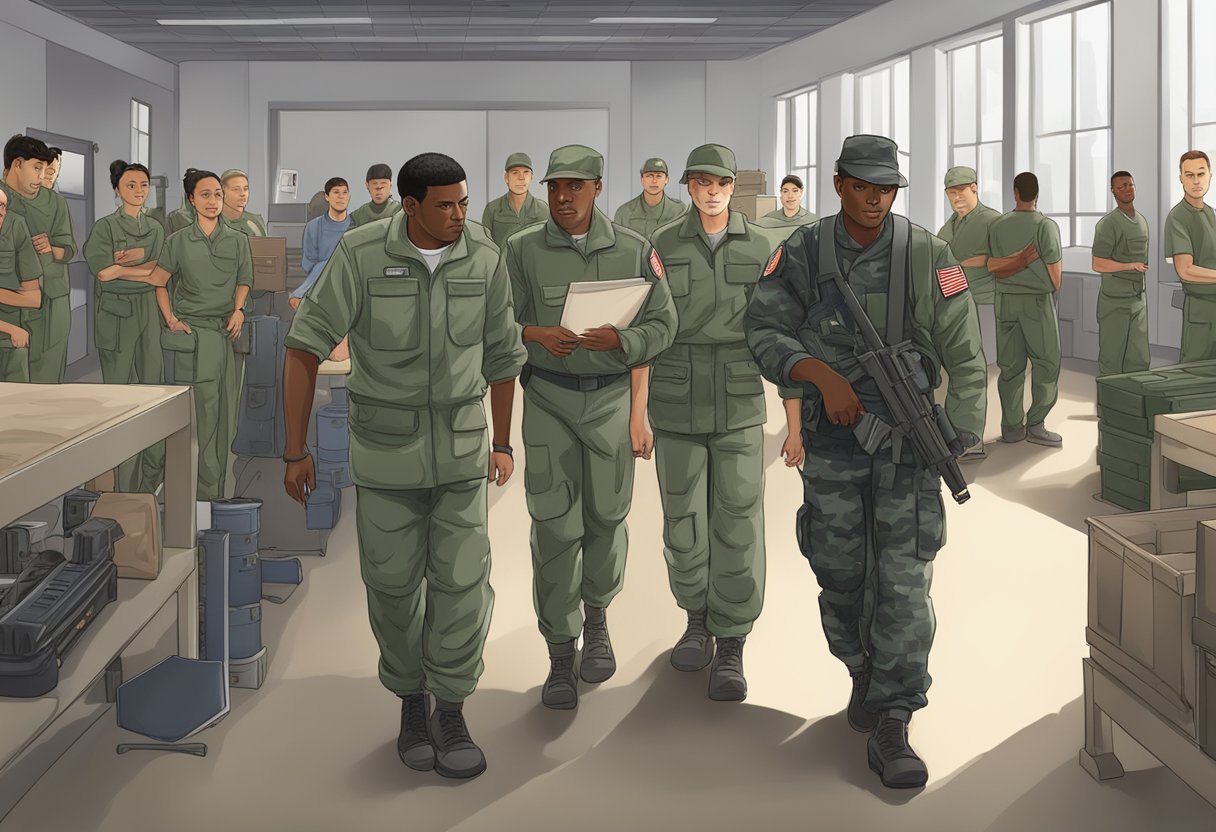Joining the U.S. military can be a rewarding path for immigrants looking for new opportunities. Many may not know that immigrants can serve in various military roles, gaining valuable experience and benefits while paving the way for U.S. citizenship. With changing recruitment needs, the military actively seeks qualified individuals from diverse backgrounds.
For immigrants, the process involves specific eligibility criteria, including legal residency and educational qualifications. Once in, they can explore numerous career paths, from technical positions to combat roles, which offer not only skills training but also educational benefits and a chance for advancement. The commitment to service can lead to significant opportunities both personally and professionally.
By understanding the options available, immigrants can make informed decisions about their future in the U.S. military and the potential it holds for them and their families.
Key Takeaways
- Immigrants can join the U.S. military and work toward citizenship.
- Various career paths and training opportunities are available.
- Serving in the military offers significant personal and professional benefits.
Eligibility and Requirements
Joining the U.S. military as an immigrant involves specific eligibility criteria and requirements. Understanding these guidelines is crucial for prospective recruits. Legal status, education, language skills, and security checks all play significant roles in the enlistment process.
Legal Status and Citizenship Pathways
To join the military, immigrants must have a valid legal status. A U.S. permanent resident card, commonly known as a green card, is often required. Those on certain visas may also qualify but must check with military recruiters.
Some immigrants may seek pathways to citizenship through military service. The military provides opportunities for expedited citizenship to non-citizen recruits after completing basic training. This route can be especially beneficial for those looking to establish their permanent residence in the U.S.
Educational and Language Prerequisites
Educational requirements vary between branches of the military. Most recruits must possess at least a high school diploma or GED. Some positions may require further education or specialized training.
Language skills are equally important. Non-citizens need to demonstrate proficiency in English, as it is the primary language used in military training and operations. Taking the Armed Services Vocational Aptitude Battery (ASVAB) test is also necessary, as it assesses overall aptitudes and helps determine suitable job roles.
Security Clearance and Background Checks
Security clearance is a vital part of the enlistment process. The military conducts thorough background checks to ensure recruits meet integrity and trustworthiness standards. This includes reviewing criminal records and personal history.
For non-citizen recruits, additional scrutiny may be applied. They must supply documentation proving their legal status in the U.S. Any security concerns can affect eligibility. Recruits should be prepared to answer questions about their backgrounds and any affiliations they may have.
Career Opportunities and Benefits

Joining the U.S. military as an immigrant opens up various career paths and offers significant advantages. Service members can gain skills, education, and access to numerous benefits that enhance their lives and career prospects.
Branches and Roles Available
Immigrants can serve in several branches of the U.S. military, including the Army, Navy, Air Force, Marine Corps, and Coast Guard. Each branch offers unique roles ranging from combat positions to technical and administrative jobs.
- Army: Roles include infantry, logistics, and cyber operations.
- Navy: Opportunities in combat, engineering, and medical fields.
- Air Force: Positions in aviation, intelligence, and support services.
- Marine Corps: Focus on combat, reconnaissance, and administrative support.
- Coast Guard: Emphasis on law enforcement, environmental protection, and search and rescue.
These roles allow service members to contribute to national security while gaining valuable experience. See military jobs for immigrants and foreigners available here.
Training and Advancement
Training is a crucial aspect of military service. Immigrants receive comprehensive training programs tailored to their chosen roles. Basic training develops essential skills like teamwork, leadership, and discipline.
After basic training, service members undergo advanced training specific to their job. This ensures they are prepared for their responsibilities.
Career advancement is based on performance, leadership skills, and time served. Promotions can lead to increased responsibilities and higher pay. Enlistment can also provide access to specialized training, setting the stage for civilian careers.
Financial Incentives and Education
The U.S. military offers competitive pay and various financial incentives. New enlistees may receive bonuses for specific roles or skills, boosting their initial compensation. Pay increases generally occur with promotions and years of service.
Additionally, the military provides educational benefits through programs like the GI Bill. This helps service members pursue higher education and vocational training after their service, significantly improving future job prospects.
Scholarship opportunities are also available, making education accessible for veterans and active-duty members.
Healthcare and Housing Benefits
Healthcare is a vital benefit for military personnel. Service members and their families receive free or low-cost medical care through military hospitals and clinics. Comprehensive coverage includes routine check-ups, emergency care, and mental health services.
Housing benefits are significant for service members. They may qualify for housing allowances or government-subsidized housing. This ensures they have a stable and secure living environment during their service.
Access to these benefits enhances the quality of life for immigrants serving in the military and their families.
